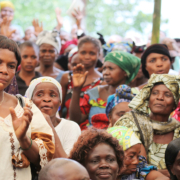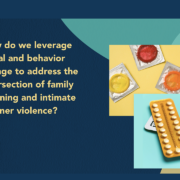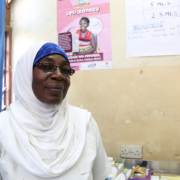We Don’t Have to Be Experts in Everything: Integrating Social Norms into SBC
Written by: Lisa Cobb, Breakthrough ACTION
Can I make a confession? I am one of the authors of Getting Practical: Integrating Social Norms into Social and Behavior Change Programs and I’m not an expert in social norms. I’ve never written a scholarly paper on norms, been part of a social norms panel at a conference, or done social norms research. When colleagues talked about the need to integrate social norms into program plans, I felt more than a little panic. I’m a social and behavior change (SBC) person. I’m expected to know how to develop a strategy, write a creative brief, interpret formative research, develop a media plan, critique a script, and launch a campaign. Isn’t that enough, for crying out loud? Do I have to be a social norms expert, too?
Well, no. I don’t. And neither do you.
The truth is that although I am an SBC “expert,” I do not have deep expertise in each and every one of the dozens of disciplines, skills, and fields that make up SBC. No one can. SBC “experts” aren’t expected to know everything, but instead to have the skills to learn and apply the right method in the right situation. Throughout my career, I’ve been comfortable doing that. But social norms theory felt different—more complicated and weighty—and I had the feeling that I simply didn’t know enough to get started; I wanted to leave it to the real experts.
I know I’m not alone in that feeling. But here’s the thing: social norms are deeply relevant to all human behavior. I have come to the conclusion that I can’t claim any sort of SBC expertise while simultaneously leaving social norms to “the experts.” It’s time we SBC practitioners decided we simply need to learn and apply social norms theory, the way we have with every other theoretical advance in our field.
Which is why I helped write Getting Practical. It’s for people who know how important social norms are, but who aren’t quite sure how what they know about social norms should change their strategies, audiences, and messages. It takes the accumulated wisdom and knowledge of “the experts” and turns it into a step-by-step guide.
The social norms expertise comes from the Learning Collaborative To Advance Normative Change, which provided not only the literature and best practices that form the basis of Getting Practical, but whose members thoughtfully reviewed and guided the tool at every step of its development.
The social and behavior change expertise comes from Breakthrough ACTION, whose staff used all they know about SBC program design to craft activities, questions, and templates that will result in high-quality SBC programming.
If you design or implement SBC projects would you consider using Getting Practical? Dip your toe in by watching the video first. Next, maybe read the introduction to the full tool. Then, when you are ready, set aside some time with colleagues and communities to work your way through Getting Practical. At the end you may not be a social norms “expert,” but you’ll be exactly what you need to be—an SBC practitioner who knows how important social norms are, and who knows exactly how to get practical with that knowledge.


 MONUSCO Myriam Asmani
MONUSCO Myriam Asmani Catharine McKaig/Jhpiego/Flickr
Catharine McKaig/Jhpiego/Flickr
 Sheena Ariyapala/Department for International Development
Sheena Ariyapala/Department for International Development

